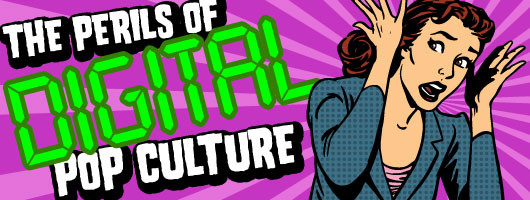
By Tom Dardick
…the hallmark of our society is not great beauty, timeless truth, or even transcendent experience.
The digital revolution continues to radically transform society. Its effect is a great boon. Our choice and power in communication, media, multi-media production, photography, publication, and collaboration is unprecedented. Enterprises of all kinds are easier to create and market than ever before. The benefits the come from this explosion of creative expression far outweigh the drawbacks. But drawbacks there are. And we should pay attention to them.
Digital technology has delivered powerful tools of media creation to the masses. It’s a miraculous blessing to artists of all types. Almost anyone with a mind to do so may build and run a personal music, video, or graphic arts production studio. Today’s microchips have the processing capacity to accomplish the necessary tasks with impressive quality and near limitless creative options. A dizzying array of software and hardware is available and affordable. With so many people empowered to express themselves, it’s easy to picture a renaissance-like explosion.
In some ways that’s what’s happening. But gems of brilliance are hidden in a sea of mediocre output. You can find great entertainment and great art; but generally only if you actively search for it. The companies that distribute media, specifically video and music programming, are poor curators. They are businesses, and as such, they respond to market forces. This means the arts that are actively marketed to us are subject to the limitations of the consumer’s power of discernment.
There is reason to question our awareness. Our lives are fast-paced, not reflective. The fact that people underappreciate the value of reflection is a detriment.
Accordingly, the hallmark of our society is not great beauty, timeless truth, or even transcendent experience.
No, today’s consumers are enamored of the convenient. And that’s precisely what we get – fast food rather than good food.
Fast and convenient requires little of us. We need not bother with the kind of learning that allows us to discern the great from the merely good-looking. A classic case is called The Loudness War. To better understand it, check out this video:
The market offers incentives to music producers to degrade the quality of their product. They sacrifice permanence and significance for the immediate attention-grabbing “listen to me” aesthetic. Millions have never been exposed to the sublime quality of the concert hall.
Some know what they’re missing but don’t seem to care. They simply value convenience more. My kids are very much like this – odds are yours are too. They will watch a show or a movie on a 5-inch screen with crappy earbuds when the kind of home theater I only dreamed about at their ages is available to them. My daughter told me that she recognizes the difference and actually gets more deeply involved in her shows on the big screen, but that consideration is usually outweighed by: 1) the pleasure of having her own little world with earphones and a screen that only she sees, 2) the ability to experience that anywhere – any seating position, etc., and 3) the ability to better multitask, specifically to pay attention to the stream of her friends’ texts and Instagram posts.
I try to teach my kids to better appreciate the elevated experience of listening to music via LP’s. They claim they are impressed, yet I never find them playing records. They’re the antithesis of convenient and therefore, not valued. Maybe it will change as they mature. I don’t predict that, however, and that makes me sad.



